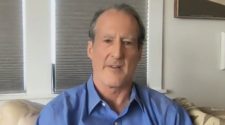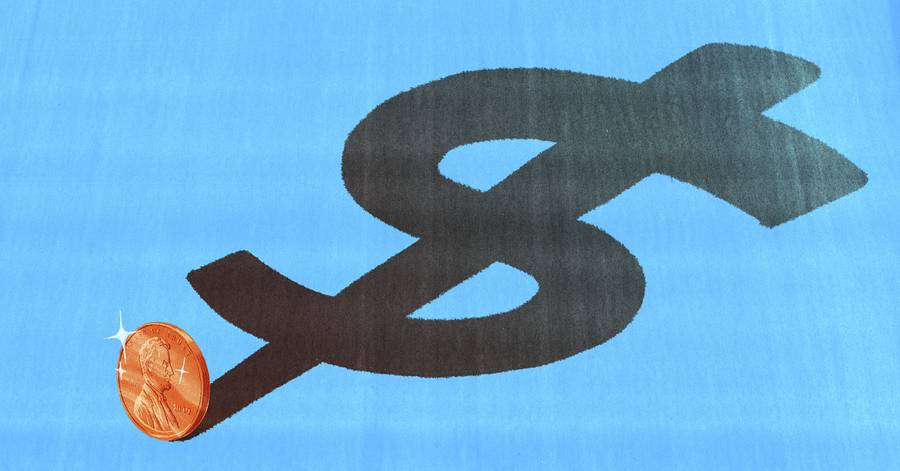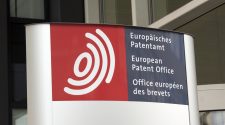Freedom isn’t free, and free trades aren’t either.
You no longer will pay a few bucks in commissions to buy or sell a security at these firms. But Schwab and other brokerage firms are in business to make money, and one way they often do that is by milking clients’ cash. When you trade for free, you still pay—at a different tollbooth.
In fact, the term “brokerage” is becoming a misnomer. Firms like Schwab are more like banks than brokers. Commissions amounted to less than 7% of Schwab’s total net revenues in 2018; they were 14% in 2014.
Why take that to zero? Eradicating commissions is the logical culmination of what Schwab has been doing ever since former newsletter publisher Charles Schwab founded the company in 1973: driving down the costs of investing. Schwab’s exchange-traded funds charge as little as 0.03% in annual expenses, and the firm offers financial planning for a $30 monthly subscription (after a $330 initial planning fee).
Schwab can offer such cheap options partly because of how it handles investors’ cash. The firm automatically sweeps idle cash not into money-market mutual funds or other assets that could yield about 2% at today’s rates, but into its own bank, which pays peanuts.
SHARE YOUR THOUGHTS
Do you think your financial adviser pays a fair interest rate on your cash? Join the conversation below.
As is typical in the brokerage business, Schwab puts clients’ uninvested cash—say, a dividend or interest payment—into what’s called a sweep account. It’s your money, but how much it earns isn’t always up to you.
You might be able to earn better rates. In the first half of 2019, Schwab clients moved $58 billion into money-market funds and other higher-yielding choices. But most don’t bother. Even worse, many don’t have a choice because they hold accounts that are required to keep cash at low yields in Schwab’s own bank. That has been a bonanza for the firm.
Schwab pushed $11.8 billion out of higher-yielding money-market funds into deposits at its own bank in the first half of 2019, according to the company. As of June 30, deposits at Schwab’s bank totaled $208 billion. This week, clients were earning between 0.12% and 0.55% on those balances.
Schwab isn’t alone. Across the brokerage industry, most sweep accounts pay measly rates—sometimes as little as 0.05% on a $100,000 balance.
This year, with the Federal Reserve lowering interest rates, sweep yields have fallen by nearly one-third, to 0.2%, since they peaked in March, according to Crane Data, a firm in Westboro, Mass., that tracks cash accounts. Average money-fund yields shrank less, to 1.8%.
With rates falling, investors care less about what their cash is earning. “A lot of the brokers are counting on this desensitivity to rates now,” says Peter Crane, president and publisher at Crane Data.
When clients invest in Schwab Intelligent Portfolios, its roboadvisory service that offers preselected baskets of ETFs, between 6% and 30% of the money goes into cash. Schwab doesn’t use money-market funds or short-term Treasury debt, which could earn nearly 2% at recent rates. Instead, it shunts the cash into Charles Schwab Bank, which currently pays 0.55% on the money—and then turns around and lends it out at roughly 2%.
With $41 billion in assets, those portfolios hold about $4 billion in cash. Conservatively assuming Schwab nets about 1.5% by lending out that money through its bank, the firm is making roughly $60 million a year on it. The clients, meanwhile, are earning less than $25 million.
Schwab discloses all this. The rate it pays on clients’ cash “may be higher or lower than…on comparable deposit accounts at other banks,” warns a disclosure from Schwab Intelligent Portfolios. “Schwab does not intend to negotiate for rates that seek to compete with” other cash options, adds the disclosure.
Furthermore, the document states, if you need to withdraw money from your Schwab Intelligent Portfolios account, the firm may sell some of your ETFs—potentially triggering a taxable capital gain—to restore your cash balance to its required level.
Fewer than 1% of clients hold such accounts at a 30% cash allocation, says a Schwab spokeswoman, and the average cash holding in the program is about 10%. The sale of some ETFs to return the cash allocation to its required level is no different from what happens after withdrawals from any other account that has predetermined targets for its holdings, she says.
Still, according to David Goldstone of Backend Benchmarking, a research firm in Martinsville, N.J., that tracks automated online investing services, no other roboadvisor requires clients to hold even as much as 10% in low-yielding cash.
How does Schwab reconcile forcing its clients to invest in its own bank at below-market rates with its duty to put clients’ interests ahead of its own?
“We take our fiduciary duty very seriously,” the company said in a statement. “Our clients who invest through Schwab Intelligent Portfolios understand the cash that will be in their portfolio before they decide to invest.”
When I asked the Securities and Exchange Commission if it had any comment on how advisers treat investors’ cash, Chairman Jay Clayton responded: “These are exactly the types of questions investors should be asking.”
Write to Jason Zweig at [email protected]
Copyright ©2019 Dow Jones & Company, Inc. All Rights Reserved. 87990cbe856818d5eddac44c7b1cdeb8
















